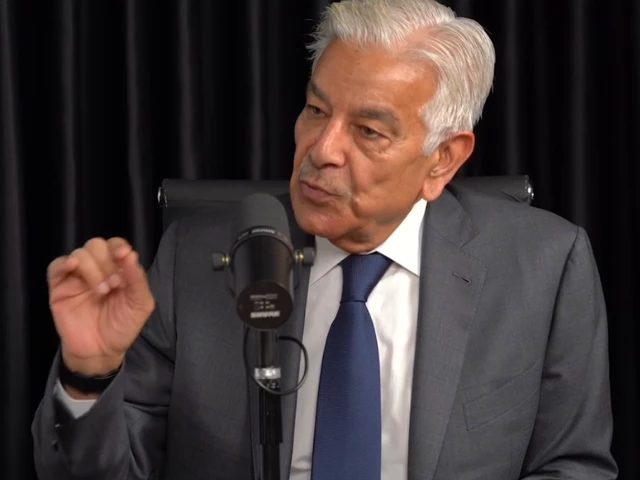The Minister of Defense, Khawaja Asif, has clarified that the recent defense agreement between Pakistan and Saudi Arabia is not linked to the current regional tensions, particularly Israel’s actions in Qatar, but is the result of years of sustained bilateral dialogue and cooperation.
In an exclusive interview with the British-American journalist Mehdi Hasan, Asif confirmed that the Covenant was not a reaction to recent regional developments.
“This agreement is not a reaction to what happened in Qatar,” he said. “I had been in negotiation for quite some time. While its completion may have been accelerated, it was already in the offer,” he added.
Asif continued explaining the long data relationship between Pakistan and Saudi Arabia, emphasizing the continuation of a defense association that dates back to more than five decades.
“We have had a military presence in Saudi Arabia for many years, sometimes reaching 4,000 to 5,000 troops. The ratio was a bit transactional, but now it has been formalized,” he said, underlining the lasting cooperation between the two nations.
Read: The prime minister is a historical response to Indian aggression, demands peace and dialogue in the Unga session
When asked if the agreement involved Pakistan’s nuclear umbrella, Asif refused to discuss the matter. “This is a defense pact, and such matters are not discussed publicly,” he replied, avoiding direct commitment on the subject.
Pakistan and Saudi Arabia signed a historical agreement of strategic mutual defense, stating that “any aggression against any of the countries will be considered an aggression against both,” according to a joint statement.
The pact was signed during the visit of Prime Minister Shehbaz Sharif to Riad by invitation of the Saudi Heir Prince and Prime Minister Mohammed Bin Salman Bin Abdulaziz to the Saud.
The interview also mentioned the internal policy of Pakistan, with Hasan questioning the Minister about the treatment of former Prime Minister Imran Khan, who has been imprisoned since August 2023.
Despite the international conviction, including a Panel of UN experts that declares the arrest of Khan “illegal”, Asif defended government actions, although it did not provide specific details about legal justification.
When asked about the accusations surrounding the Twitter account of former Prime Minister Imran Khan, Asif replied stating that Khan is operating the account from his jail cell.
Read: Indian officer linked to the murder plot, murder plans in Nepal or Pakistan, alleges an US court.
Hasan, however, said Asif had previously suggested that the account was running from India. In a sincere exchange, Asif replied: “Who, then, is operating the account? What is the truth? Or is operating it from her cell, or at least I should identify who is behind her.”
When asked about the evidence that supports his statements, Asif was reluctant to provide details. “I can’t reveal the evidence,” he said. However, when more pressed if the statements were based on intelligence, he confirmed: “Obviously, it is based on intelligence. No one openly affirms it.”
The conversation became broader geopolitical problems, such as Pakistan’s position in Kashmir. Asif reiterated the support of Pakistan for a possible referendum for the independence of Kashmir and maintained that the issue of self -determination for the people of Cashmiro is still central in Pakistan’s foreign policy.
When addressing the current state of relations with the United States, he recognized a “transactional” dynamic with Washington, describing the relationship as “flirtatious.”
When asked about Pakistan’s relationship with China, Asif reaffirmed that China remains the most important strategic partner of Pakistan. “They are reliable and are our neighbors,” he said, emphasizing the crucial role that plays the bilateral relationship in Pakistan’s foreign policy perspective.




